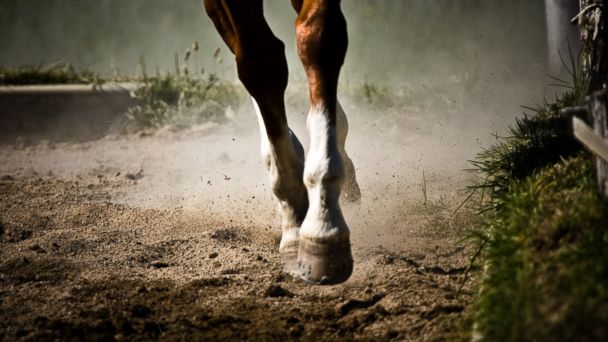Members of Congress Tackle Horse 'Torture'
It was an unusual sight - show horses parading around the Capitol. But these Tennessee Walking horses came to bring attention to what many see as horse abuse.
It's a practice called "soring" - using pain-causing chemicals, chains and pads on a horse's ankles to make it walk with a higher, unnatural step.
It's called the "Big Lick" and it wins at horse shows.
"It's cruelty, it's intentional torture," said Keith Dane, Vice President of Equine Protection for the Humane Society. "These horses are suffering pretty much their entire lives of their show ring careers in order to give blue ribbons and prizes to their owners and trainers."
The Humane Society has also released undercover videos alleging abuse of horses undergoing soring.
Soring has been illegal for almost 45 years under the Federal Horse Protection Act. But the problem for many is the industry is allowed to police itself. It trains and certifies its own inspectors.
READ: Video Reveals Torture of Horses Trained to Win Championships
"The people that determine whether or not soring is taking place are inspectors that are hired by the shows where the owners are abusing the horse with the soring practice," said Rep. Ed Whitfield, R-KY, who is sponsoring a bill designed to make sure the practice of soring ends.
Dane said, "The self-regulation in the industry is like the fox watching the hen house and it doesn't work."

(Getty Images)
Many horse owners don't see a reason to force horses to learn to step higher.
"Walking horses have a beautiful natural gate that does not need to be enhanced by chemical or mechanical means," said horse owner Mikal Spooner, of North Carolina, who attended a rally at the Capitol Wednesday to draw attention to the problem.
Spooner and the other horse owners who went to the Capitol didn't see any need to make their horse walk in what they felt was an unnatural manner.
READ: Horse Trainer Pleads Guilty to Animal Abuse
Lauren Kovacs is one of the people who inspects show horses for signs of abuse. "Normally chains, they're not a good sign," she said. "You look, make sure there's no scarring. It's not always obvious. People do their best to hide it, in fact."
The bill, which has bipartisan support, would increase penalties, make items used in soring illegal, and make inspectors independent. It is stalled in Congress because some members believe it would cost jobs and hurt the industry.